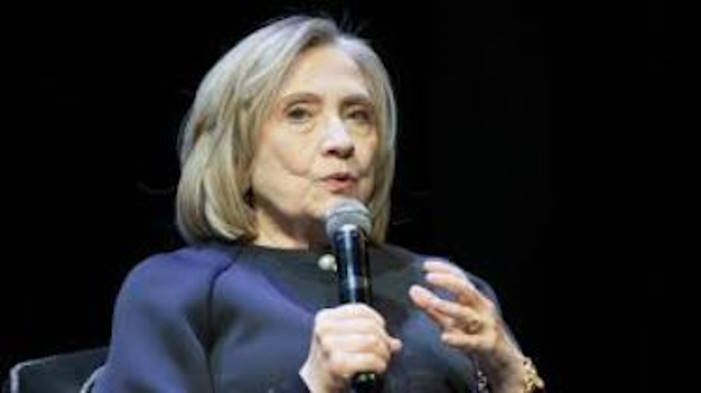
Judicial Watch Settles State Department Lawsuit that Uncovered Hillary Clinton’s Unsecure, Nongovernment Emails
Judicial Watch is Awarded $97,000
Judicial Watch Press Release
Judicial Watch announced today it settled its 2014 Freedom of Information Act (FOIA) lawsuit, which sought the emails of then-Secretary of State Hillary Clinton regarding the Benghazi attack. This suit led directly to the disclosure of Clinton’s use of a nongovernment email server to conduct government business (Judicial Watch v. U.S. Department of State (No. 1:14-cv-01242). The settlement commits the State Department to a payment to Judicial Watch of $97,000.
This FOIA lawsuit, about the Obama administration’s Benghazi scandal, forced the Obama administration to admit to Hillary Clinton’s hidden classified and other government emails in 2015. Judicial Watch uncovered “talking points” created by the Obama White House and other documents showing that statements about the attack made on the eve of the 2012 elections by then-National Security Advisor Susan Rice were false.
On December 6, 2018, U.S. District Court Judge Royce Lamberth ordered Obama administration senior State Department officials, lawyers and Clinton aides, as well as Susan Rice, to be deposed or answer written questions under oath. Judge Lamberth called the Clinton email system “one of the gravest modern offenses to government transparency.”
On March 2, 2020, U.S. District Court Judge Royce Lamberth authorized Judicial Watch to depose Clinton about her emails and the existence of relevant Benghazi attack documents. The court also ordered the deposition of Clinton’s former Chief of Staff, Cheryl Mills, and two other State Department officials. The U.S. Court of Appeals for the District of Columbia Circuit, in an extraordinary intervention, exempted Clinton and Mills from testifying under oath.
“The Clinton email scandal uncovered by Judicial Watch’s simple FOIA lawsuit changed the course of American history and led to Hillary Clinton’s defeat in 2016,” stated Judicial Watch President Tom Fitton. “Our historic lawsuit is now officially over and settled through a remarkable payment of $97,000 by the corrupt State Department. Hillary Clinton ignored the law but received special protection from both the courts and law enforcement. For countless Americans, this double standard of justice destroyed their confidence in the fair administration of justice. Americans would never have known about Hillary Clinton’s classified email and related pay-for-play criminality but for Judicial Watch’s diligence.”
This Judicial Watch lawsuit exposed several key aspects about the scope of the Clinton email scandal and cover-up:
- John Hackett, former Director of Information Programs and Services (IPS) testified under oath that he had raised concerns that former Secretary of State Hillary Clinton’s staff may have “culled out 30,000” of the secretary’s “personal” emails without following strict National Archives standards. He also revealed that he believed there was interference with the formal FOIA review process related to the classification of Clinton’s Benghazi-related emails.
- Heather Samuelson, Clinton’s White House liaison at the State Department, and later Clinton’s personal lawyer, admitted under oath that she was granted immunity by the Department of Justice in June 2016.
- Justin Cooper, former aide to President Bill Clinton and Clinton Foundation employee who registered the domain name of the unsecure clintonemail.com server that Clinton used while serving as Secretary of State, testified he worked with Huma Abedin, Clinton’s deputy chief of staff, to create the non-government email system.
- In the interrogatory responses of E.W. (Bill) Priestap, assistant director of the FBI Counterintelligence Division, he stated that the agency found Clinton email records in the Obama White House, specifically, the Executive Office of the President.
- Jacob “Jake” Sullivan, Clinton’s senior advisor and deputy chief of staff when she was secretary of state, testified that both he and Clinton used her unsecure non-government email system to conduct official State Department business.
- Eric Boswell, former assistant secretary of state for diplomatic security during Clinton’s tenure as secretary of state, testified that Clinton was warned twice against using unsecure BlackBerry’s and personal emails to transmit classified material.
To read more about this case, click here.